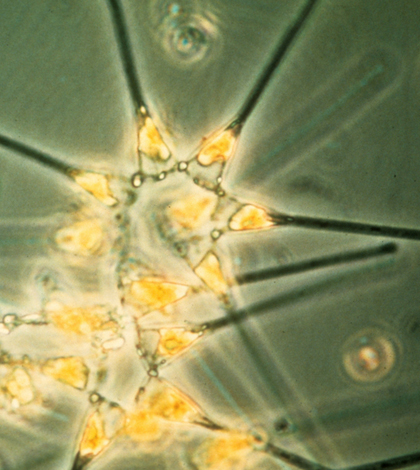Phytoplankton May Be Able To Adapt To Climate Change

Phytoplankton, or sea sawdust, play an an important role in the marine phosphorus cycle. (Credit: NOAA MESA Project)
Tiny marine algae are important to every ecosystem in the ocean. Researchers have worried that these crucial microorganisms may have poor survival rates in a world with ever-increasing amounts of CO2. However, according to a press release from the University of Edinburgh, these concerns may be unfounded, and the phytoplankton may be more than able to adapt to global warming trends.
Researchers grew phytoplankton under higher CO2 conditions expected in the year 2100 and further into the future. They studied the growth of 400 generations of phytoplankton and came to the conclusion that the tiny organisms were able to adapt to the CO2 changes, though they underwent more evolutionary change and became smaller than their counterparts grown at stable CO2 conditions. Previous assessments of the phytoplankton’s ability to survive climate change were also based on marine algae grown under stable conditions.
Scientists are concerned, however, that if phytoplankton experiencing the higher CO2 levels of the future do indeed become smaller than they are today, that may lead to food shortages for many organisms. Another concern is that smaller phytoplankton might be less efficient at pulling carbon out of the atmosphere and sequestering it.
Top image: Phytoplankton are important to every ecosystem in the ocean. (Credit: NOAA MESA Project)




0 comments